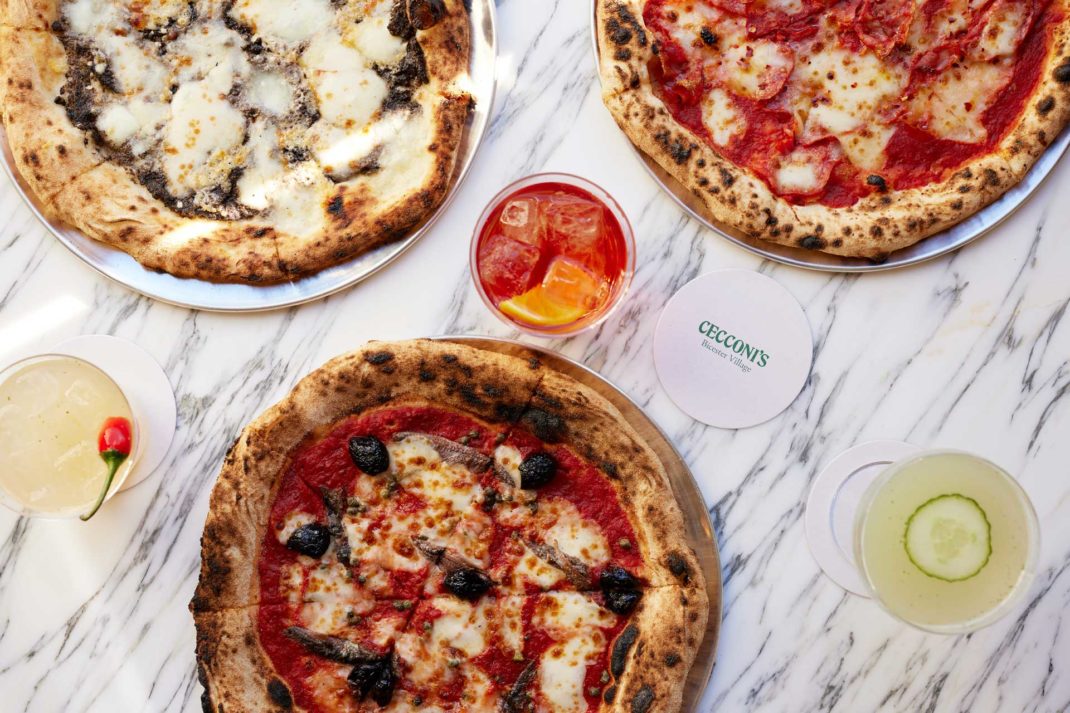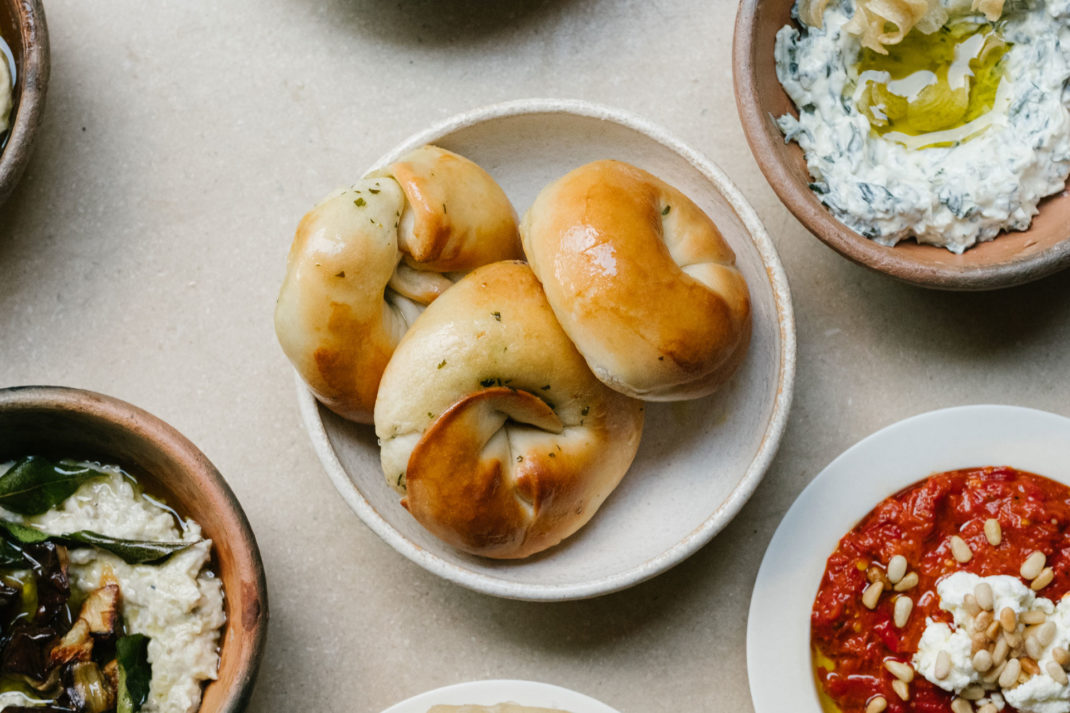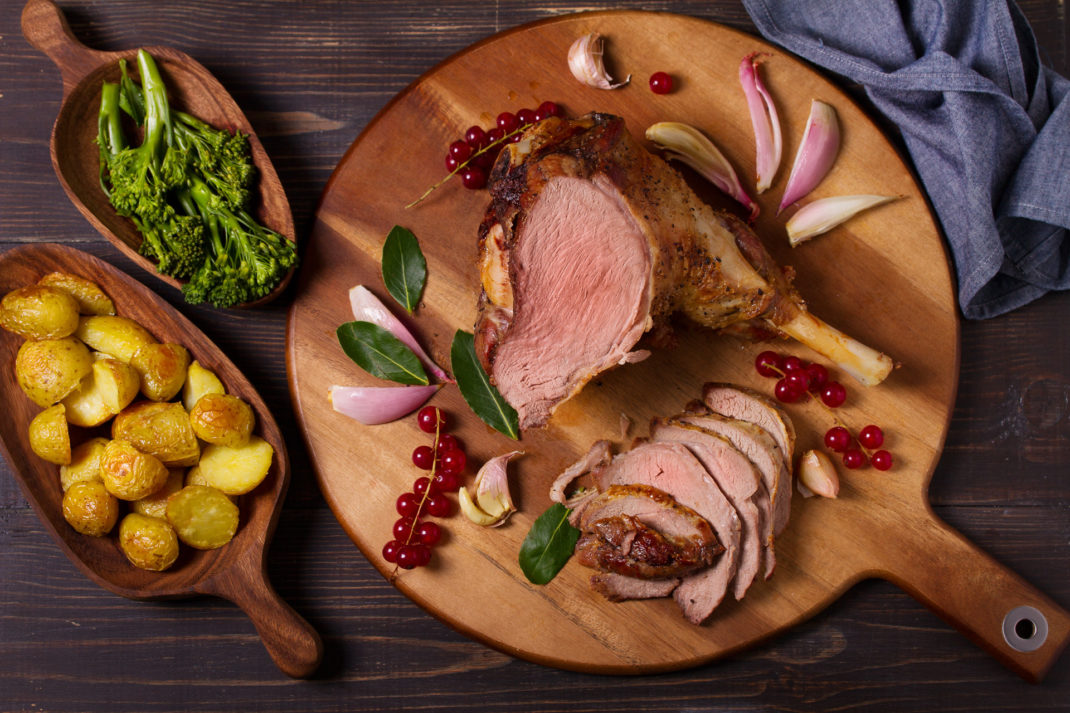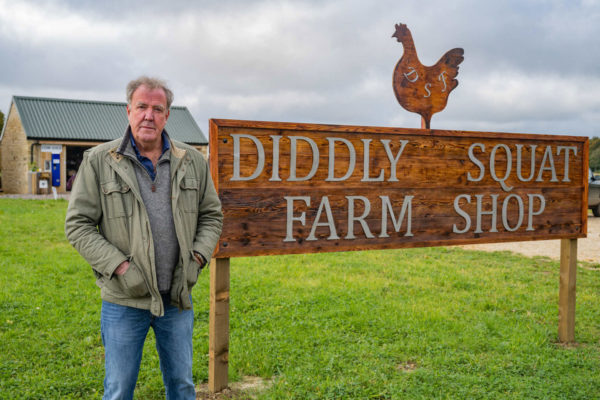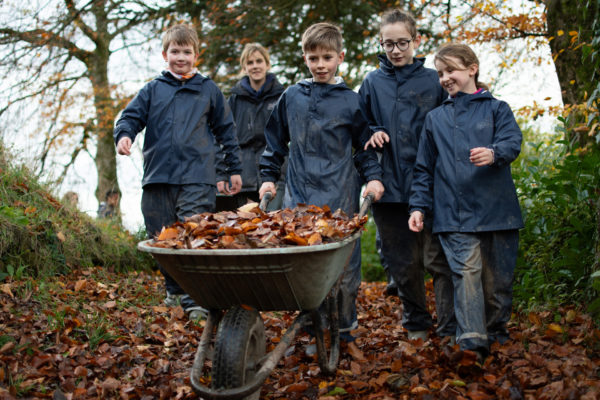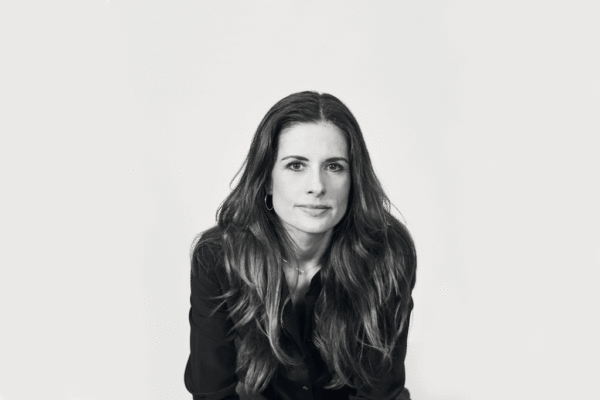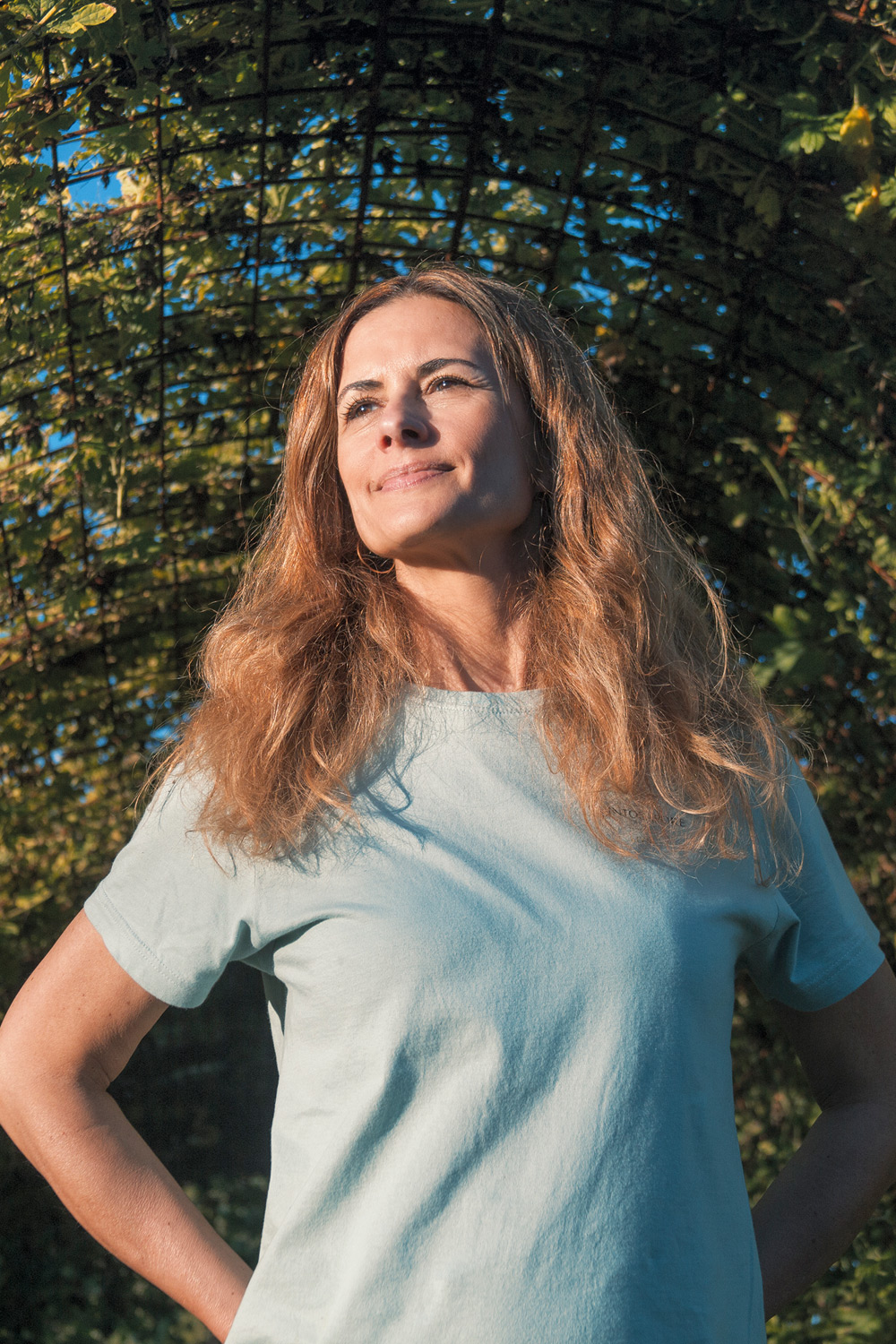
Inside Livia Firth’s New Umbrian Farm
By
2 months ago
The eco champion has pivoted into the world of sustainable agriculture
Following the closure of Eco-Age and a cancer diagnosis, Livia Giuggioli Firth has pivoted her focus to sustainable farming – and is more driven than ever, finds Kamin Mohammadi
Livia Firth On Her Move Into Sustainable Farming
When Livia Giuggioli Firth and her ex-husband Colin Firth found themselves spending the Covid lockdown with her Italian family in Umbria, Livia had no idea that her twin brothers’ newly acquired farm would become her new passion project. She was then running Eco-Age, the world’s first sustainable fashion consultancy, a multi award-winning project that advised big brands and the fashion industry on sustainability. In 2015 she had produced the pivotal documentary The True Cost, which explored the impact of fashion on people and the planet, and was founder of the Green Carpet Challenge, using her platform to persuade Hollywood and fashion’s biggest celebrities to don ethical fashion on the red carpet. She was showered with awards and accolades for her activism, and Anna Wintour said of her: ‘Livia is fearless, she’ll pick up the phone to anybody. It’s very personal to her.’
Quintosapore
Livia’s new sustainability project is Quintosapore, and it’s very personal indeed. The organic family farm that her twin brothers Nico and Alessandro (the Twin Farmers) acquired in 2019 prompted Livia to dream of returning to live in Italy during the grim days of lockdown. ‘Even though it was a terrible time, being here and being involved in the farm was inspiring,’ Livia says now. ‘Honestly, at the end of lockdown, I didn’t want to leave.’
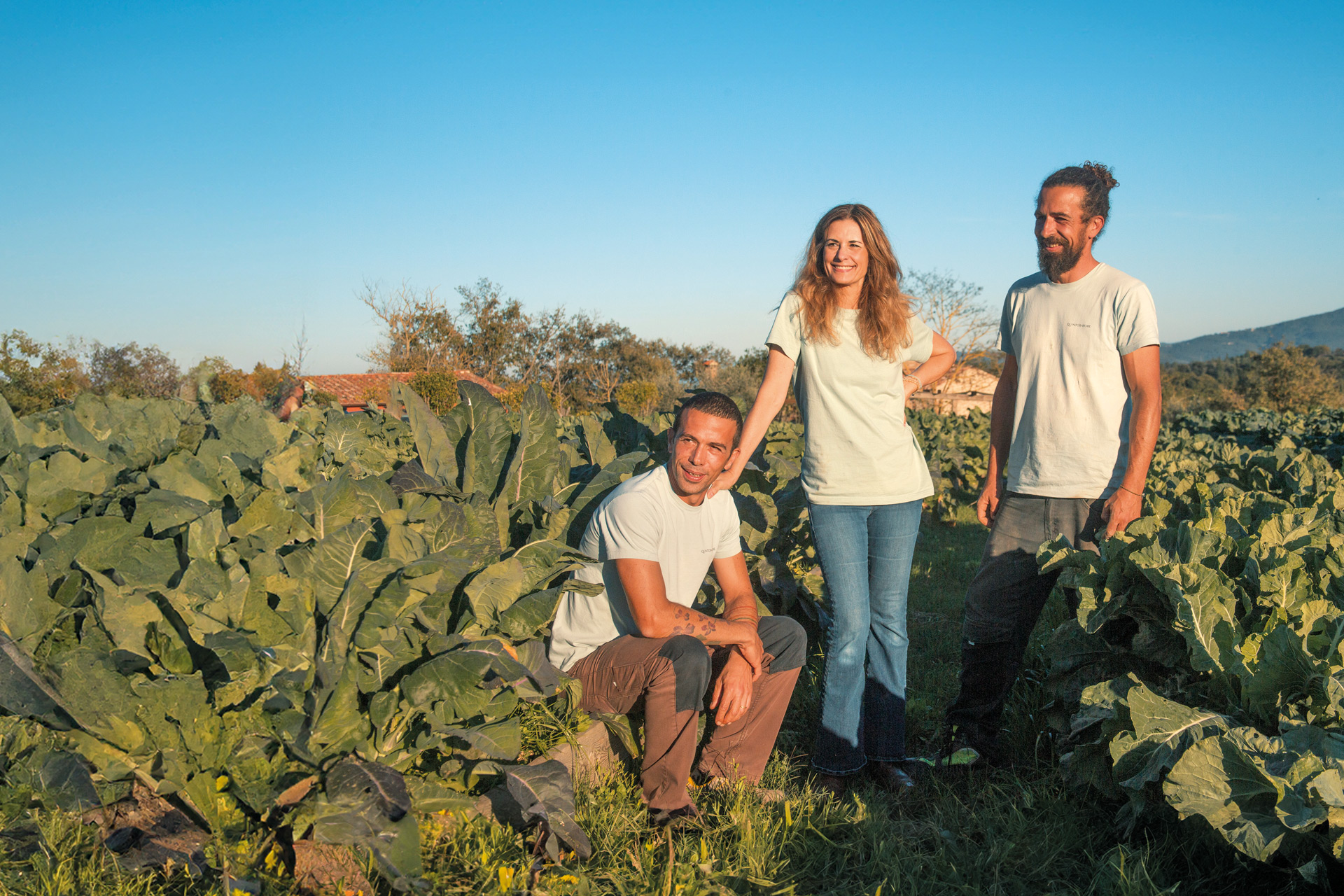
It is easy to see why. Sitting with Livia and the twins at a long table outside, the wooded valley falls away, giving Quintosapore 360-degree views of the countryside, the horizon etched with the distant outline of the medieval Citt à della Pieve, the nearest town. On the other side, we can just about see the house that their parents bought when they were children – where they spent most weekends and holidays growing up, roaming the countryside, the twins starting their habit of collecting seeds (now a cornerstone of their farming activities). As the twins busy themselves with cooking for us on the sophisticated outdoor grill, the sun beats down, butterflies flutter and there is nothing but birdsong to serenade us: it is as if time has stood still and modern life has receded. But it is the idyllic nature of this very scene that speaks to the fracture the farm unflinchingly addresses: we may be in T-shirts eating outside, but we are meeting in November, the temperature should be much lower and those butterflies should not still be in evidence. The changing climate and its attendant effects are all around us.
‘As activists, we always said our focus would be on what we eat or what we wear,’ says Livia, indicating her brother Nico, who worked at Eco-Age with her. ‘We did our best to bring sustainability to what we wear and now, it’s what we eat.’ Eco-Age had to fold earlier this year due to criminal activity that shocked Livia and decimated the company. Around the same time, she was diagnosed with breast cancer and was successfully treated – but both events, devastating as they were, helped her to pivot towards more positive action: sustainable agriculture.
‘People said maybe you should stop the activism, slow down now,’ she says, ‘but actually it gave me a whole new perspective and the farm gives me hope. We have to face the challenges of the climate crisis head on, and what the twins are doing here is more than sustainable farming – it is a rethinking of the approaches that have stripped the soil and brought us to this point. I can’t think of a better way to face the Earth’s uncertain future than to be working with the land to support nature to feed us. And slowing down is what the way we farm forces you to do anyway. You learn patience with farming.’
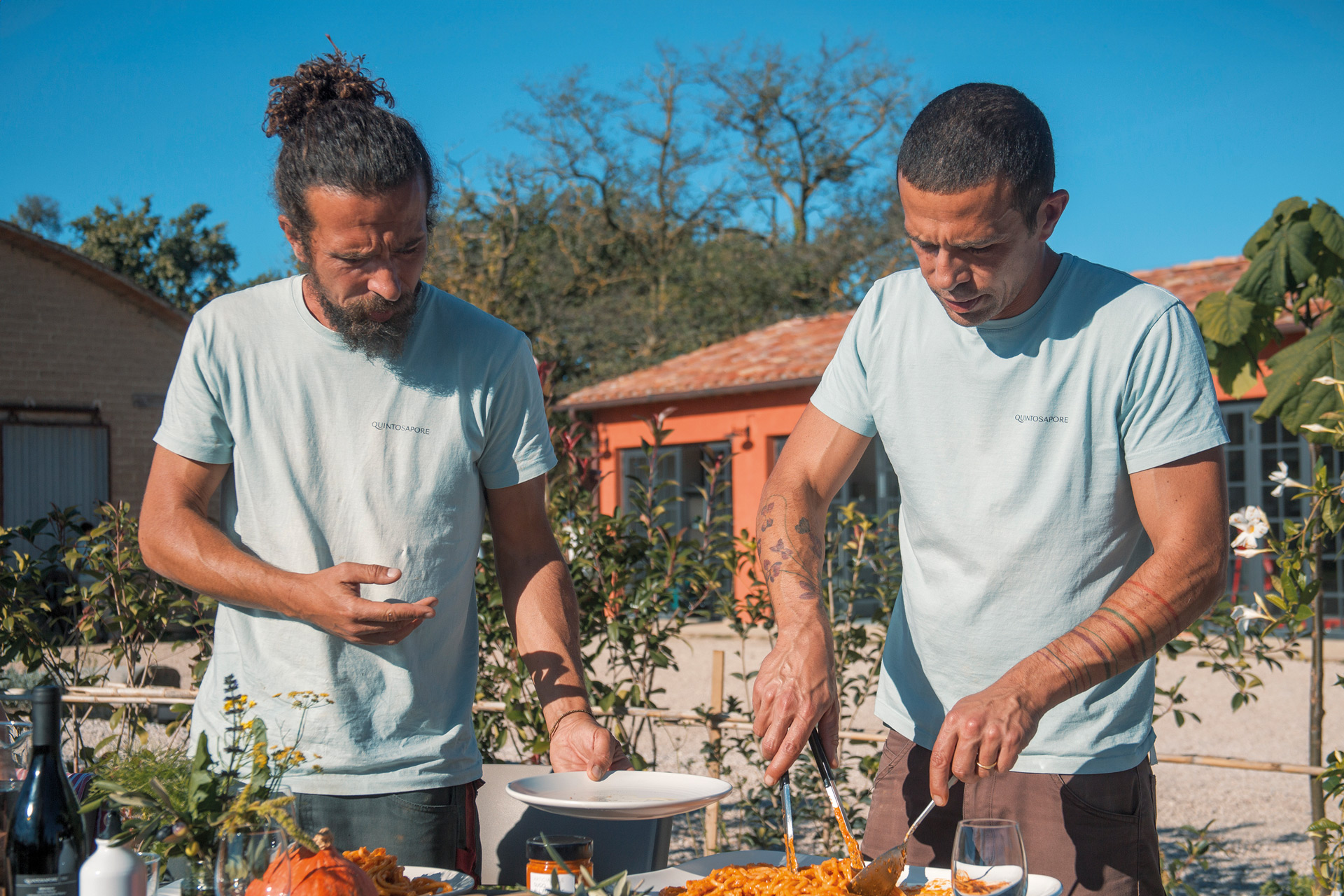
‘Agriconcura’ is what the twins call it: ‘farming with care.’ Nicola and Ale are the brains – and brawn – behind this unique farm. It is certified organic, but Quintosapore goes much further. Combining many agricultural methods, from permaculture to biomimicry, this is a vertically integrated project that aims to regenerate soil, foster biodiversity, imitate nature in its swift response to change, and combine the best traditional wisdom with modern technology to invent a whole new way of farming with dignity at its core. In their central laboratory, the team prepares and jars up the delicious – and award-winning – products they sell, such as aubergine caviar, tiny delicate yellow courgettes in oil, and a smoked chilli salt that is swoon-worthy in its sophistication. Equipped with gleaming machinery, this is where Nico experiments to eliminate the need for preservatives or additives in any of their products. So pure is their tomato sauce, for example, that on applying to the FDA for export to the US, the agency ran its own tests to ascertain its verity. It was approved.
The 65-acre farm ranges over several hillsides, at the apex of which is the outdoor cooking area and splendid long table overlooking the rise and fall of the Umbrian hills. Walking the land with Livia and the twins is an education; we pause as Ale and Nico show us the fruits of their labours, pointing out raised beds that eliminate the need for digging and indicating unusual vegetables and ancient varieties that they cultivate from their collection of seeds. Rows of vegetables stretch away, exotic Japanese cucumbers hang from arches, red spinach glows along trellises, and autumn-hued hills fall away on all sides as the dogs run around and we bask in the afternoon sun. Everything hums with life. It’s easy to see why, in spite of the hard work the farm demands, the three siblings are enchanted by what they are cultivating here, both the soil and the Quintosapore philosophy.
‘And you know, at its heart is love,’ says Nico. ‘Love for the land, for our people, the environment, the soil, the food that we share.’ He indicates the long table at which we are sitting, with Ale, a former filmmaker, Livia, and many of the staff of the farm, all tucking into a bountiful meal made of their own produce, washed down with wine from an ancient variety they have resuscitated. Ale tells the story of their Malmaturo wine, a forgotten grape they brought back to life on a hillside where it had always been grown. He traced the variety all the way back to the Etruscans, a sophisticated pre-Roman civilisation that lived in Umbria and Tuscany.
‘We call this the last supper,’ laughs Livia. ‘We feel in this age of climate challenge and AI, the simple human things are more important than ever – connection with likeminded people, breaking bread together, community.’ It comes back to the central energy of Quintosapore. ‘Love, of course,’ the siblings exclaim in unison. And this they share with the world through their Soil to Fork experiences: guided farm visits, which end in a splendid lunch featuring a five-course tasting menu. By the end of the experience, visitors are invariably part of the Quintosapore family. ‘You become a Quintosaporean,’ says Livia, eyes sparkling.
During the Soil to Fork visits, the twins cook up feasts using their own vegetables and products, sharing their stories and meticulously researched farming methods with their guests. Their approach is to mimic nature to enable the environment to support itself, making the use of chemicals unnecessary. This includes using biochar, microorganisms and fungi to enrich the soil fast and planting fast-growing trees to create shelter and self-sustaining ecosystems for crops. Their enthusiasm drives their conversation, and even brings quantum physics into their farming philosophy.

Then we are back to love: how the twins encourage their workers to speak to the plants lovingly as they handpick the produce; how experiments have shown that plants treated with love grow faster and are more resilient to pests. The Quintosapore vision extends to their insistence on employing their farm workers all year round, with secure contracts and a living wage – in an industry that uses armies of illegal foreign workers on pittance wages to meet its margins. The twins, however, believe that time has value and treat their workers accordingly, investing in people who make up the Quintosapore extended family and its unique ethos.
‘It boils down to dignity,’ Ale says, ‘treating the land, our people and our produce with the dignity it deserves. After all,’ he sweeps his hand across the landscape, ‘we are all guests here on this planet, and if we look after the soil, the soil will look after us.’
Kamin Mohammadi is author of Bella Figura: How to Live, Love, and Eat the Italian Way

